Recently I appreciated a comment made on a post about hostesses at the Harlot’s Parlour. I wrote to the commenter and asked if he’d like to see his words in a post here, and Richard Jeffrey Newman said yes. The sex industry brims with stories like these, but they rarely reach the public’s eyes or ears. The sex industry’s confusions and ambiguities are well represented here: a commercial sex site where real people have real feelings for each other, both kindly and cruel, despite apparent roles of sex worker and client.
Your post brings back memories of the 15 months or so that I spent as an English teacher in South Korea between 1988 and 1989, especially Ms. Park, the hostess in the standbar (karaoke) near where I lived that I and some of my fellow teachers went to regularly. We always sat at Ms. Park’s station and then, after I started going sometimes by myself, partly because I enjoyed spending time with her and partly because they let me jam with the band and making music made me happy, she and I became friends to the degree that we were able, given the language barrier and the fact that we only saw each other at her place of work for a few hours once or twice a week.
Once, she asked if she could come to my apartment when she was finished working, and I was happy to say yes. It meant a lot to me that she had asked, because it meant that she wanted whatever would happen between us when she got to my place to be something other than the commercial exchange that took place when I paid for the beer and plate of food she brought me a price that was set to include the slow dancing and flirting and surreptitious and not-so-surreptitious touching that was part of her job as a hostess. I knew that part of her job was also to have sex with men who paid her for it, but as the rules had been explained to me (and I suppose that if this explanation was wrong, then my whole comment is sort of meaningless) if a customer proposed sex to a hostess and she agreed, he had to pay for it; if she proposed sex to him, however, he did not.
I didn’t then, and I do not now, object to the buying and selling of sex per se, though I have never felt the desire to do either myself. Still, I have often wondered whether or not I would have paid if that had been the only way that Ms. Park and I could have been together. Because I wanted her as well. The fact that she asked me meant I didn’t have to find out, though as it happened she never came to my apartment either. And here, as far as I can tell is why: Ms. Park smiled at me when I said yes in a way that I will never forget; it was such a simple, happy smile. A few minutes later, however, an older Korean man walked over to us and struck up a conversation with me. He asked what I was doing in Korea, where I was teaching and made other small talk for a few minutes before he nodded in Ms. Park’s direction and asked if me if I liked her. I said yes. “She has beautiful labia, you know,” he continued, looking directly at her before turning his eyes again on me. I said something that politely let him know I was not interested in his company and turned back to Ms. Park who suddenly refused to look me in the eye. For the rest of the night, she refused to look me in the eye. I don’t know what the relationship was between Ms. Park and that man, other than the obvious, but what he said shamed her that night in a way that she was unable to recover from.
When I went back the next week, and the week after that, and after that, she was her usual self. Almost. She never brought up the question of her coming to my place again, and something told me not to ask, that if I did ask she would say yes, but that she would be saying yes not as the woman who stepped outside of the buying and selling of sex to tell me that she wanted me. Rather, she’d be saying yes as a sex worker for whom sex with me would be work, and that was something I had no desire to pay for.
I have, of course, no way of knowing if my sense of things was accurate, and perhaps I was/am romanticizing and/or rationalizing, but it was what I felt and your post made me think about it for the first time in a long time, and so I thought I’d share it here.
Richard Jeffrey Newman, September 2009

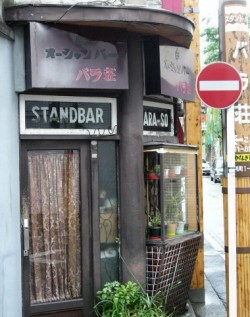






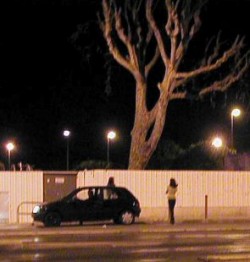
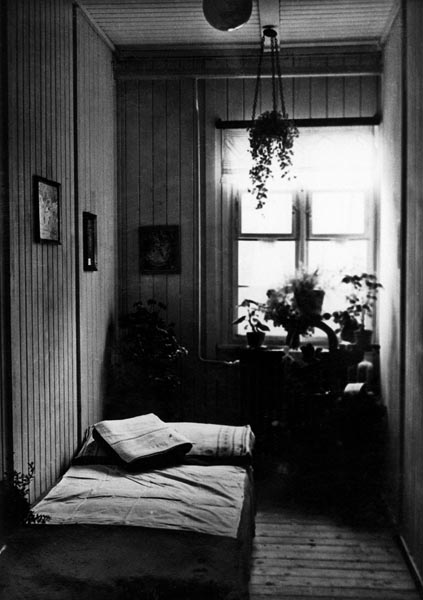


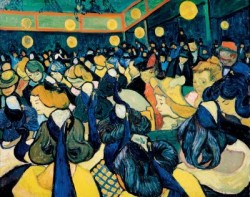

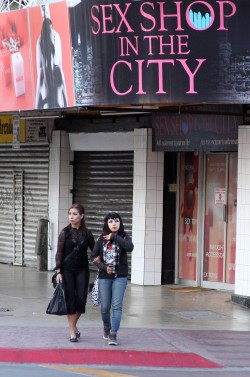

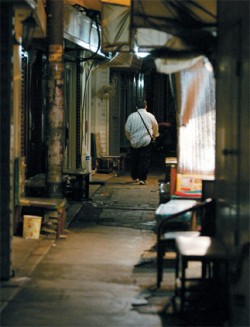


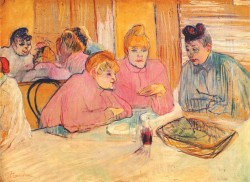












 Photos include strippers, a Soho walk-up, brothels in the Czech Republic, Austria, Cambodia, Mexico, Australia, the USA and Germany, Soi Cowboy and Pattaya in Thailand, sex shops in Finland and Taiwan, hostess and karaoke clubs in Japan and China, brothel paintings by Toulouse Lautrec and Vincent Van Gogh and historical pictures.
Photos include strippers, a Soho walk-up, brothels in the Czech Republic, Austria, Cambodia, Mexico, Australia, the USA and Germany, Soi Cowboy and Pattaya in Thailand, sex shops in Finland and Taiwan, hostess and karaoke clubs in Japan and China, brothel paintings by Toulouse Lautrec and Vincent Van Gogh and historical pictures. 